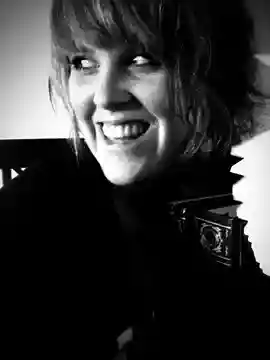Navigating the rough terrain of today’s publishing industry shouldn’t be a solo event. This week in Ask the Agent, I’ll explore and dissect three of the industry’s mysteries straight from the shoulder.
Question from J.C.
I self-published my debut novel last year, but I'm now considering approaching agents again with it. Do agents only consider previously self-published novels if they have good sales figures, or do they judge it more by the quality of the book alone? The reason I ask is because, whilst I've had some great reviews for it, my sales haven't been high. Will that hinder my chances of finding an agent for it now?
When you self-publish your work, you are proving the market for said book, whether there is or isn’t one. If your sales are poor, you’ve proven that there is no market for your book and editors may not want to buy it, thus making agents very wary to represent it.
For a self-published book to be a success you want at least 20,000 to 50,000 copies sold, and even then it can be a challenge. If you self-published and got a positive review from a professional source (i.e., Kirkus) maybe that will help, but average Joe good reviews do not translate to successful sales.
My advice, if you have self-published a book, is to wait until you have a new manuscript and query agents with that project.
Pro tip: Exhaust the traditional publishing opportunities before you turn to self-publishing. Unless self-publishing is your bag.
Question from Renee
I have a quick question about young adult fiction. My book is about something that happened when the character was a teen, but is being told in retrospect, when the character is older. I am pretty sure that is why I'm getting feedback from agents that the character doesn't sound like a teen: because the narrator technically isn't a teen when telling the story. 1) Is that okay in young adult fiction and 2) If it's not okay, does that mean that my book is not considered young adult fiction and I should be labeling it as something else?
Yes, your manuscript sounds like adult fiction. Young adult fiction deals with teen characters with sensibilities inherent in teenagers. They lack the introspection and jaded worldviews of adult characters. They also don’t self analyze in the same way as adult characters.
It’s perfectly acceptable to have an adult character reminiscing about their past as a teen, but this should be considered adult fiction. There are plenty of adult books with teen characters.
Pro tip: Having a teenage character does not mean it is a young adult novel.
Question from Matt
I wrote a book. It's 63k words. It's for adults. Is it too short?
The required length of your book depends on the genre you are writing. 63k words is on the short side for an adult novel, however it’s not unheard of for literary fiction. However, in genre fiction, there are different expectations. Genre fiction such as thrillers/romance/science fiction/etc., have set parameters both in word count and content. It’s harder to bend word count in genre fiction.
Chuck Sambuchino with Writer’s Digest gives a comprehensive look at word count for all genres. Check that out here.
Pro Tip: Looking at comp titles for your manuscript is a great way to determine word count.
Thank your for all the wonderful questions this week. "Be well, do good work, and keep in touch" -Garrison Keillor
Have a question about the publishing industry? I would love to discuss the specifics of researching and querying agents, finding the right agent, proper publishing etiquette, how to go from idea to completed manuscript, marketing yourself, social media for writers, and anything else you can think of! I am now taking questions for Issue 19 of Ask the Agent. Issue 19 answers will be posted Monday, March 18th.

About the author
Bree Ogden is a literary agent at Red Sofa Literary and a comics/TV columnist and reviewer at Bloody Disgusting.
When she's not agenting, compulsively watching horror films, reading comics, hiding out at her local science center, or killing off her bee colonies, she serves as the managing editor of the macabre children's magazine Underneath the Juniper Tree, which she co-founded in 2011 with artist Rebekah Joy Plett.
Bree teaches query craft and graphic novel scripting at LitReactor as well as serves as the Assistant Class Director. Unless you are an exciting new piece of taxidermy, she'll probably never let you in her room. You can find her at agentbree.wordpress.com.








